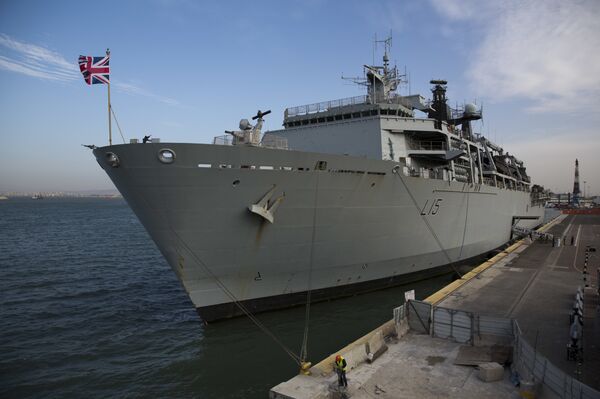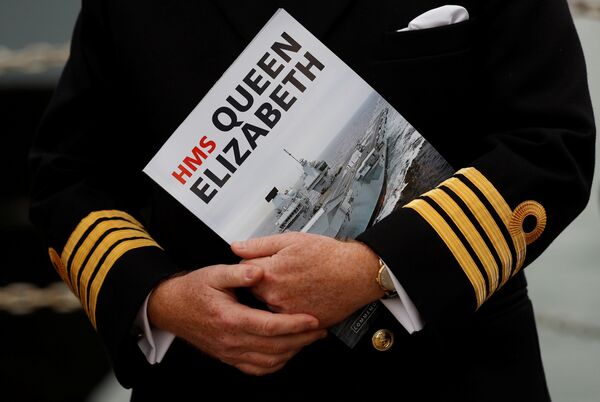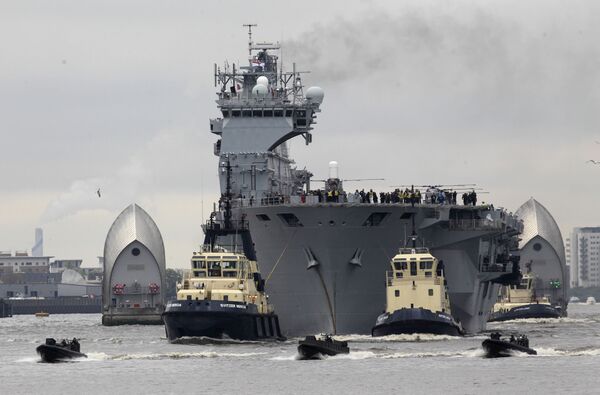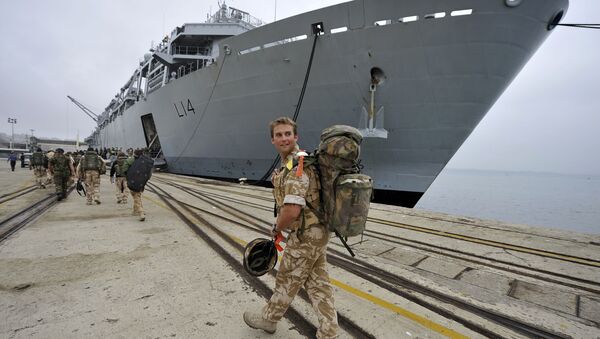Arrangements with European countries, including a joint expeditionary force, would be put at risk, if Britain's plans to sell front-line warships and landing platforms — HMS Bulwark and HMS Albion — proceed as part of a cost-cutting defense review, despite a warning from military chiefs that it will pose a serious future threat to the UK's already over-stretched naval resources.

Britain's 'Unique Selling Point'
Whitehall says any attempt to sell-off the ships would affect Britain's plan to become the lead nation for NATO's immediate follow-on forces group in 2019, which is the second wave of personnel that would be deployed in a crisis following the initial response. Such lead responsibility is normally carried out on a rotation basis by the member states.
Both Bulwark and Albion, loaded with landing craft, provide command and control in a maritime operation, according to a Whitehall insider, who added:
"This is what we bring as our unique selling point to the party, alongside our world-class Royal Marines."
Under the present NATO arrangement, Britain is committed to providing at least one landing platform, as well as a commando group of marines. It is required also to provide an amphibious assault ship in 2019 to support the Netherlands when Amsterdam takes the lead.
The UK's amphibious capability is also an important factor within a UK-led joint expeditionary force, involving Norway, Denmark, Estonia, Latvia, Holland and Lithuania. Similarly it has strong ties with America and France to provide these front-line warships on any military exercises — something it would no longer be able to do if the ships are sold.

MoD Response 'Delusional'
The suggestions by UK Ministry of Defence (MoD) that two new aircraft carriers — HMS Queen Elizabeth and HMS Prince of Wales — would assume the role of the assault landing platform ships in future are "at best delusional, at worst mendacious," according to Lieutenant-General Sir Robert Fry, the former head of the Marines.

Sir Robert said that an amphibious operation was complex and required command-and-control facilities that only existed on landing platform docks. While troops could be transported by helicopter from the aircraft carriers that have still to come into service, the same did not obviously apply when it came to shipping heavy equipment and logistic support during exercises which have always been done by amphibious landing platforms, he explained.
Another option being touted is cutting 1,000 British Royal Marines, a move that has already incurred the wrath of the United States Marine Corps, who claim it would hamper UK-US military ties in the future.
"We are a leading member of NATO and national security capability review will mean Britain is better placed to work with allies. No decisions have yet been made and at this stage, any discussion of the options is pure speculation," and MoD spokesman said.
The Sell-Off
Both Chile and Brazil have been informed the front-line warships could become available for sale next year, along with two Type-23 frigates, according to a proposals put forward earlier in October by Admiral Sir Philip Jones, head of the Royal Navy, in order to solve a major funding crisis.
It has also been hinted the amphibious assault ship and helicopter carrier HMS Ocean — currently the largest vessel in the Royal Navy — could also be either retired from service despite not even being 20-years-old or sold off for a bargain price of US$100,950,000.

The possible sell-off comes after it was revealed this month that HMS Atherstone and HMS Quorn, two of the Royal Navy's 15-strong fleet of mine-hunting vessels were scrapped instead of undergoing planned upgrades in order to reduce costs.
The new generation of frigates to replace the Duke-class vessels will not be available until 2020 at the earliest.
Defense Cuts Scrutiny
Military chiefs have already met to examine ways of saving nearly a billion pounds (US$1.3 billion) during the current financial year, as well as even greater cost-cutting measures in the next decade.
Sir Michael Fallon, Britain's defense secretary, came under scrutiny when he appeared before the Commons Defense Committee on Wednesday, October 25, to answer a barrage of questions from MPs concerned over future military cover and protection.
He dismissed reports of selling warships and reducing manpower numbers as "pure speculation."
NATO has, so far, refused to comment on the situation.


